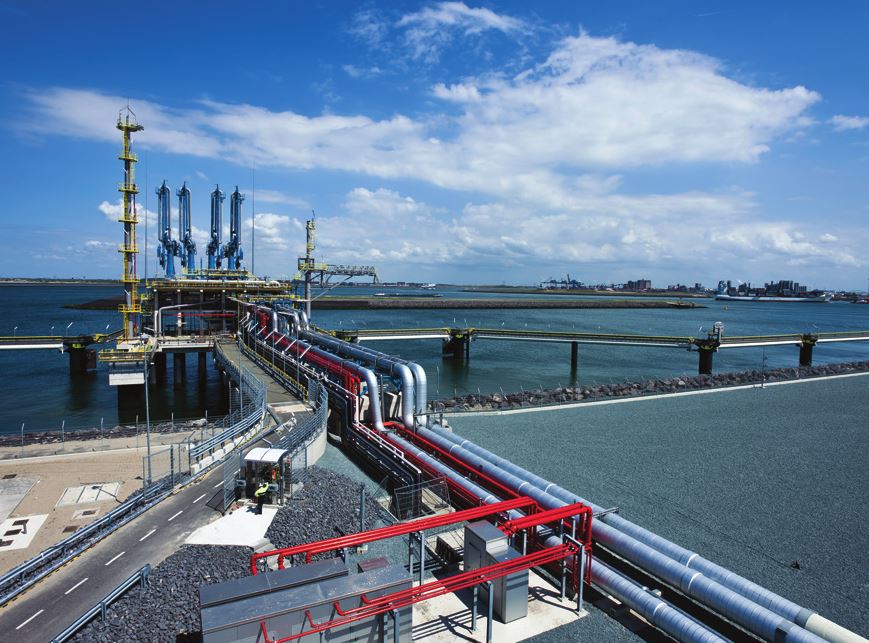Dutch gas transmission network operator Gasunie said on Tuesday that a new FSRU-based terminal in the port of Terneuzen is not feasible in the short term, but the firm will continue to study expansion options in Rotterdam and Eemshaven.
In December, Gasunie provided more details regarding its plans to boost LNG import capacity in the Netherlands, including a potential floating LNG import facility in Terneuzen.
The firm is working with its partner in Gate terminal Vopak to further boost the regasification capacity in the Netherlands.
“The recently announced feasibility study has shown that a new floating LNG terminal in the port of Terneuzen is not feasible in the short term,” Gasunie said on Tuesday.
“The aim of realizing temporary LNG import capacity in Terneuzen in the short term and for a limited period proved to be technically and commercially unfeasible. It is therefore unwise to embark on the construction of a temporary additional terminal,” the company said.
Fourth Gate LNG tank, Eemshaven capacity boost
Gasunie owns the Gate terminal along with Vopak. The facility, one of Europe’s main LNG hubs, received a permit in September to add the fourth tank and boost regasification capacity up to 20 bcm per year. The terminal is currently capable to regasify about 16 bcm per year.
Besides Gate, Gasunie also started delivering LNG from the new Eemshaven LNG hub with a capacity of 8 bcm in September last year.
This facility features two chartered FSRUs, namely Exmar’s 26,000-cbm barge-based FSRU Eemshaven LNG and the 170,000-cbm Energos Igloo, owned by a joint venture of asset manager Apollo and US LNG firm NFE.
The studies for a new floating LNG terminal are part of a broader package of proposed measures to increase LNG import capacity in the Netherlands.
“This is necessary to cope with the loss of Russian natural gas and reduce scarcity in the European gas market,” according to Gasunie.
Gasunie said it continues to explore new opportunities for temporary import capacity.
For example, work is now continuing on initiatives to further expand the existing capacity of the Gate LNG terminal in Rotterdam and the Eemshaven facility operated by its unit EemsEnergyTerminal.
“At Gate terminal, this involves a possible fourth tank with a capacity of 4 billion cubic meters of natural gas and at Eemshaven, a technical optimization of the existing plant is being investigated,” it said.
The ambition of EemsEnergyTerminal is to be able to handle 9 billion cubic meters of natural gas before the end of this year, and then to grow to 10 billion cubic meters of natural gas, Gasunie said.
Also, Gasunie added that the investments in Eemshaven and at Gate terminal “are suitable for the transition to green hydrogen.”

